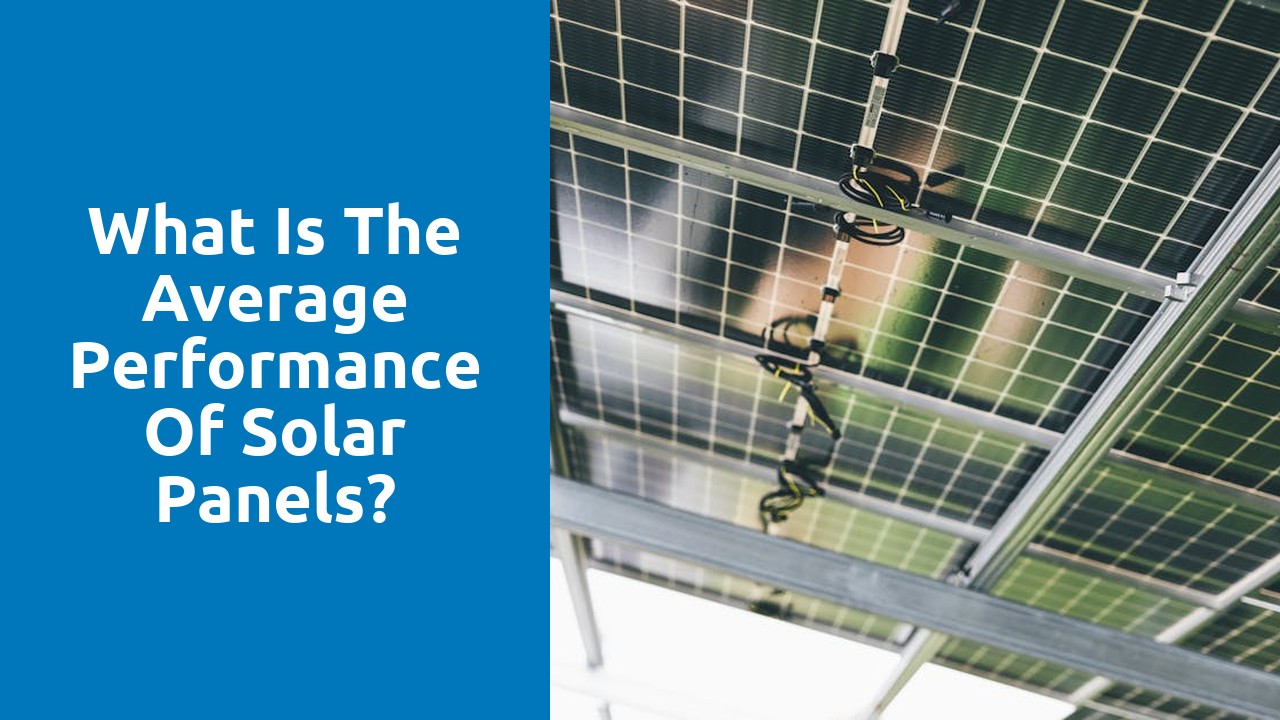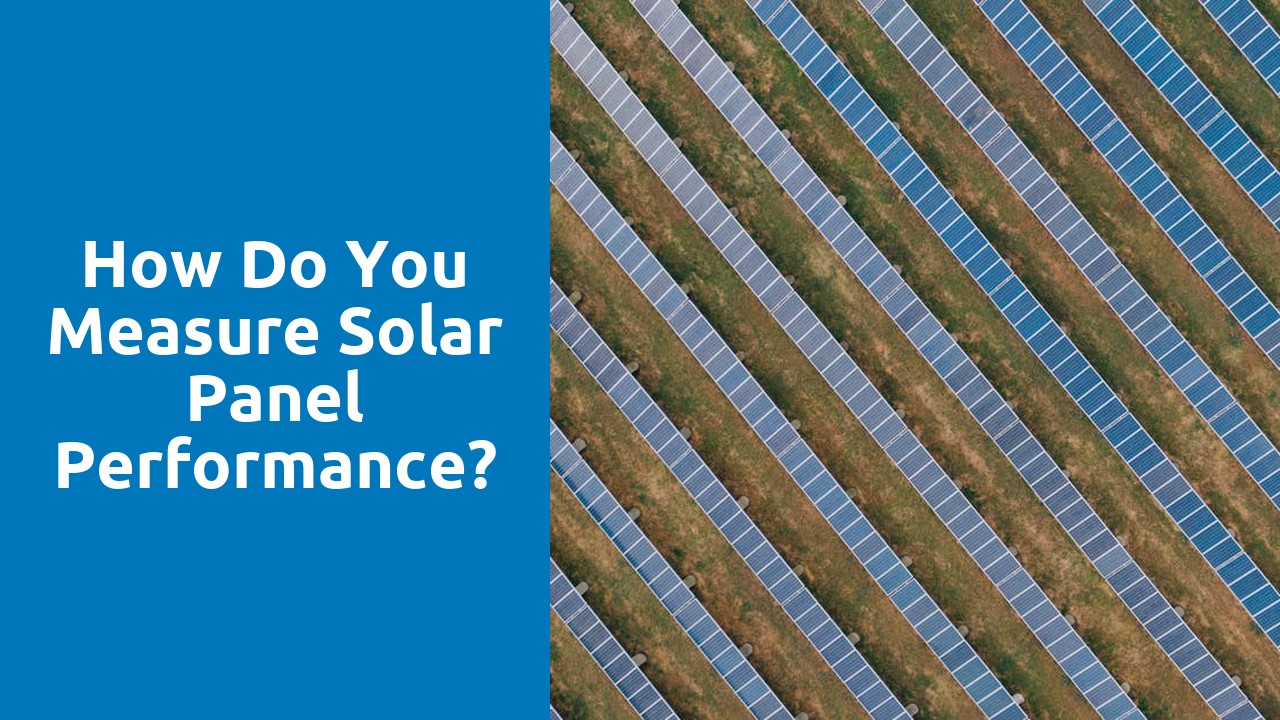
Evaluating Solar Panel Lifespan
Evaluating the lifespan of solar panels is crucial in determining their overall performance and cost-effectiveness. Solar panel systems typically come with a warranty that guarantees a certain level of performance over a specified duration, usually around 25 years. However, many solar panels can continue to generate electricity effectively beyond this warranty period. To assess the longevity of a solar panel system, conducting a Solar Panel System Performance Analysis is essential.
During a Solar Panel System Performance Analysis, experts evaluate the degradation rate of the panels over time. This degradation rate reflects how much the energy output of the solar panels decreases each year. By understanding this rate, solar system owners can anticipate when they might need to replace or upgrade their panels to maintain optimal energy production. Regularly monitoring and analysing the performance of solar panels can help users make informed decisions about maintenance and investments in renewable energy.
Impact of age on energy production
In evaluating solar panel lifespan, the impact of age on energy production is a critical aspect to consider. As solar panels age, their efficiency gradually decreases, leading to a decline in energy production levels. This decline is due to factors such as degradation of materials, dust accumulation, and wear and tear on the panels over time. To ensure optimal performance and energy output, regular maintenance and monitoring of older solar panel systems are essential. Conducting routine Solar Panel System Performance Analysis can help identify any issues and implement necessary measures to mitigate the effects of aging on energy production.
Strategies for increasing return on investment for solar panel systems must also take into account the impact of age on energy production. Older panels may require upgrades or replacements to improve efficiency and prolong their lifespan. Implementing measures such as cleaning the panels regularly, enhancing ventilation around the system, and investing in advanced technologies can help maximise energy production levels and ROI. By staying proactive and addressing age-related performance issues promptly, solar panel owners can ensure sustained energy output and optimal financial returns from their investment.
Maximising Solar Panel ROI
Maximising Solar Panel ROI
Investing in solar panels is a significant financial decision, and ensuring a high return on investment is crucial for homeowners and businesses alike. To maximise the return on your solar panel investment, consider conducting a Solar Panel System Performance Analysis periodically. This analysis can provide valuable insights into the efficiency and output of your solar panel system, allowing you to identify any potential issues affecting its performance.
In addition to regular performance analyses, implementing strategies to optimise the energy production of your solar panels can significantly increase your ROI. Simple measures such as cleaning your solar panels regularly, ensuring optimal placement to maximise sunlight exposure, and trimming nearby trees or structures that may cast shadows on the panels can all contribute to improving the efficiency and output of your solar panel system. By proactively addressing any performance issues and adopting a proactive maintenance approach, you can maximise the return on your solar panel investment in the long run.
Strategies for increasing return on investment
When looking to enhance the return on investment for solar panels, conducting a thorough Solar Panel System Performance Analysis is crucial. This involves evaluating the efficiency and output of the solar panels to identify any areas that may be underperforming. By pinpointing these weaker areas, adjustments or upgrades can be made to drive improved energy production and ultimately increase the system's ROI.
In addition to regular performance assessments, implementing solar panel monitoring technology can greatly aid in maintaining optimal efficiency levels. Monitoring systems provide real-time data on energy generation, allowing for quick detection of any issues that may arise. By staying proactive in monitoring the solar panels' performance, any potential problems can be addressed promptly, ensuring that the system operates efficiently and continues to deliver a strong return on investment.
Addressing Solar Panel Performance Issues
Addressing Solar Panel Performance Issues
When facing issues with the performance of solar panels, it is crucial to conduct a thorough Solar Panel System Performance Analysis. This analysis involves examining various factors that could impact the efficiency of the system, such as shading, soiling, or potential defects in the panels. By identifying the root cause of the issue through a comprehensive analysis, it becomes easier to implement targeted solutions that can help enhance the performance of the solar panels.
One common problem that can affect the performance of solar panels is shading. Whether caused by nearby trees, buildings, or obstructions, shading can significantly reduce the energy production of the system. To address this issue, various solutions can be considered, including strategic panel placement, tree trimming, or the installation of optimisers to mitigate the impact of shading. By proactively addressing shading issues and other performance concerns through a systematic analysis, solar panel owners can maximise the efficiency and output of their system over time.
Troubleshooting common problems
Solar panel systems can encounter various issues that may affect their performance and efficiency over time. One common problem faced by solar panels is dirt and debris accumulation on the surface of the panels. Regular cleaning and maintenance can help prevent this issue and ensure optimal sunlight absorption for maximum energy production. It is recommended to clean the panels with a soft brush and mild soap to avoid scratching the surface and maintain their performance.
Another common issue affecting solar panel systems is shading from nearby objects such as trees, buildings, or structures. Shading can significantly reduce the amount of sunlight reaching the panels, leading to decreased energy production. Conducting a thorough Solar Panel System Performance Analysis can help identify shading issues and determine the best solutions to mitigate them, such as trimming trees or repositioning the panels to maximise sunlight exposure. By addressing these common problems promptly, solar panel owners can enhance the performance and longevity of their systems.
FAQS
What factors affect the performance of solar panels?
Several factors can impact the performance of solar panels, including the angle of installation, shading, temperature, and maintenance.
How long do solar panels typically last?
Solar panels can last for 25-30 years or more, with most manufacturers offering warranties for around 25 years.
What is the average efficiency of solar panels?
The average efficiency of solar panels ranges from 15% to 22%, with some high-quality panels reaching efficiencies of over 22%.
Can I improve the performance of my solar panels over time?
Yes, you can improve the performance of your solar panels by ensuring proper maintenance, cleaning, and potentially upgrading them with newer, more efficient models.
What should I do if my solar panels are underperforming?
If your solar panels are underperforming, you should first check for shading issues, clean the panels, and consider consulting a professional for troubleshooting common problems.
